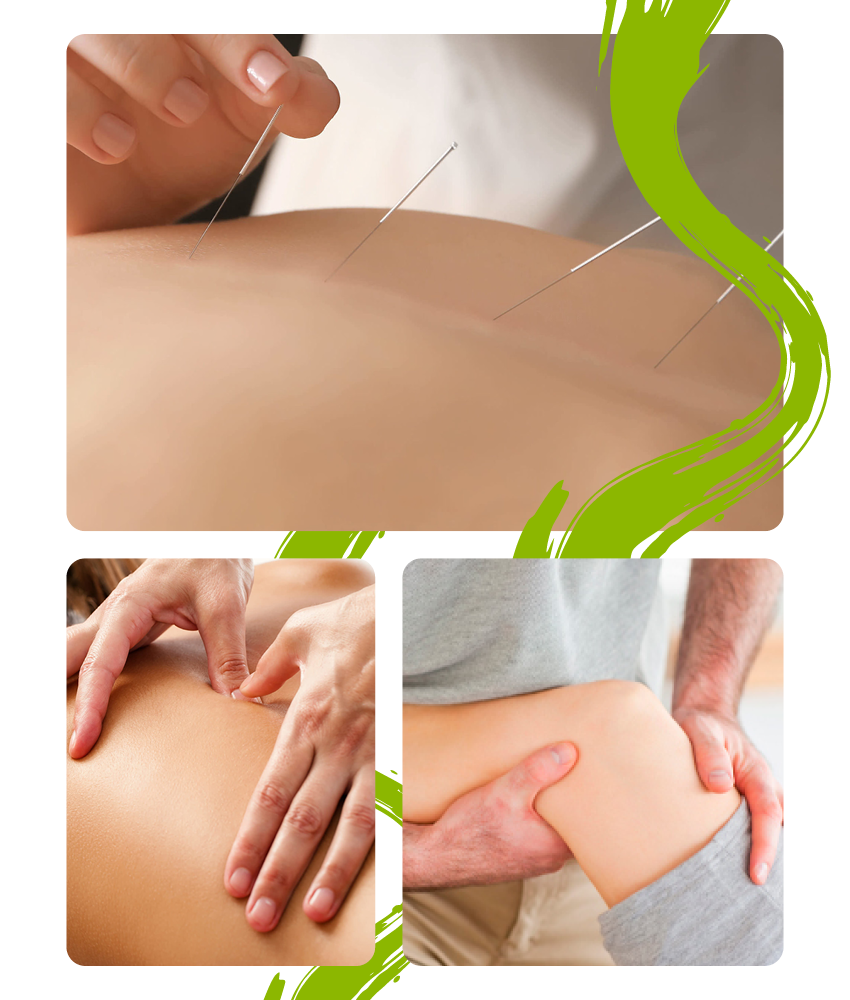TREATMENTS
Acupuncture
Acupuncture has been used to successfully diagnose, treat and prevent illness and disease for over 2,000 years.
Acupuncture promotes overall wellbeing, relieves pain, improves organ function, and strengthens the body’s natural defences.

TREATMENTS
Acupuncture
Acupuncture has been used to successfully diagnose, treat and prevent illness and disease for over 2,000 years.
Acupuncture promotes overall wellbeing, relieves pain, improves organ function, and strengthens the body’s natural defences.

What is Acupuncture?
Acupuncture is based on the theory that the body has channels of energy, or meridians, that flow throughout the body.
When these channels become blocked, it can cause pain and illness. Acupuncture works by stimulating specific points along these meridians, which helps to unblock the energy and promote healing.
During an acupuncture treatment, thin needles are inserted into the skin at specific points along the meridians. The needles are left in place for about 20-30 minutes while the patient lies still and relaxes. This can help to relieve pain, reduce inflammation, and promote the body’s natural healing processes.
What are the Benefits of Acupuncture?
Acupuncture has been shown to be effective for a variety of conditions, including:
Chronic pain:
Acupuncture can be an effective treatment for chronic pain conditions such as back pain, neck pain, and arthritis.
Anxiety and depression:
Acupuncture has been shown to be an effective treatment for anxiety and depression, and can help to reduce stress and improve mood.
Insomnia:
Acupuncture can be an effective treatment for insomnia and can help to improve the quality of sleep.
Digestive disorders:
Acupuncture can help to regulate digestion and alleviate symptoms such as nausea, bloating, and diarrhoea.
Headaches and migraines:
Acupuncture can be an effective treatment for headaches and migraines, and can help to reduce the frequency and intensity of these conditions.
Infertility:
Acupuncture can be an effective treatment for infertility, and can help to regulate hormones and improve reproductive function.
Overall, acupuncture is a safe and effective treatment that can help to promote healing and relieve pain. If you’re considering acupuncture, it’s important to choose a licensed and experienced acupuncturist who can provide you with the best possible treatment for your specific condition.
What to expect during your acupuncture treatment at our Sussex clinics.
Before Your Appointment
Before your appointment, you should avoid consuming large meals, alcohol, or caffeine. You should also wear comfortable clothing that allows easy access to the areas of the body that will be treated.
During Your Appointment
When you arrive at your acupuncture appointment, your acupuncturist will ask you some questions about your medical history, symptoms, and lifestyle. This will help them to determine the best course of treatment for you.
Once your acupuncturist has assessed your condition, they will begin the treatment. They will insert thin, sterile needles into specific points on your body. You may feel a slight sensation or pinch as the needles are inserted, but this should not be painful.
After the needles are inserted, you will be asked to lie still for 20-30 minutes while the needles work their magic. During this time, you may feel a sense of deep relaxation or even fall asleep.
Your acupuncturist may also use other techniques, such as cupping or moxibustion, to complement the acupuncture treatment.
After Your Appointment
After your acupuncture appointment, you should drink plenty of water to help flush out any toxins that may have been released during the treatment. You should also avoid any strenuous activities for a few hours to give your body time to recover.
It’s common to experience some mild soreness or bruising at the needle insertion sites, but this should subside within a day or two. You may also feel a sense of relaxation and reduced pain or discomfort in the area that was treated.
